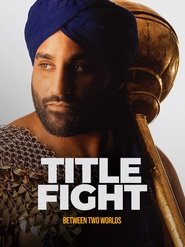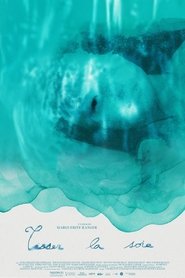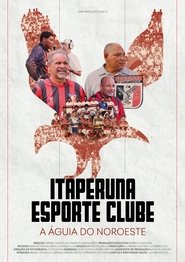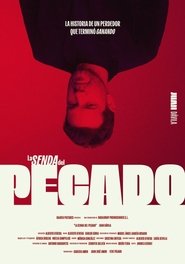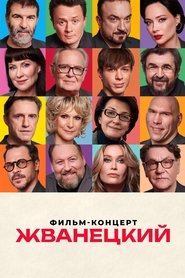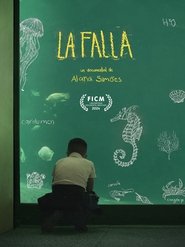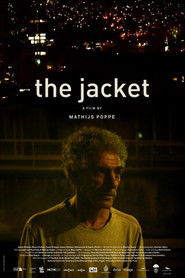New Documentary Movies - Page 316
-
Title Fight
2025
Title Fight
2025
star 10When Avtar Bhullar immigrates to British Columbia, he faces systemic racism and physical intimidation—his answer: Kushti, a traditional Indian form of wrestling. Determined to protect his son from the same fate, Avtar trains a young Arjan Singh Bhullar in Kushti. Fast forward to 2021—Arjan, now a Commonwealth Games Gold Medalist, prepares to challenge Brandon Vera for the ONE FC World Heavyweight Title. But this is more than a fight—it’s a battle for identity, pride, and the hopes of two nations: Canada and India. Featuring exclusive commentary from Prime Minister Justin Trudeau, Ariel Helwani, Daniel Cormier, and Russell Peters, Title Fight is a deeply human story about heritage, resilience, and triumph. -
La calle está escuchando
2025
Hip-hop is an art form of resistance and transformation. Hugo, known as Sombra Chico Raro, uses rap to find his place in the world. From the streets of Guadalajara, his lyrics and rhythm reflect the harshness of his surroundings and his desire to change them. Between music, his past, and his present, Sombra explores the possibilities of a future where art is his refuge and his most powerful weapon. -
Lovely Lena - 15 Jahre Satellite
2025
Celebration of the 15th anniversary of Lena's win in the 2010 Eurovision Song Contest with the song Satellite. -
Silk Spun
2025
Silk Spun
2025
Blending memories, fiction, and confessions, Silk Spun tells the history of three generations of women from a Vietnamese family since their arrival in Quebec in 1975. In the intimacy and vulnerability of her intergenerational relationships, the director exposes the contextual disparities transforming the relationship to individual identity among the women of her family. -
Et c'était la foule
2025
Et c'était la foule
2025
-
In unison
2025
In unison
2025
-
Itaperuna Esporte Clube - A Águia do Noroeste
2025
Documentary about the team from a small town that played against the big teams from Rio de Janeiro in the 1980s and 1990s and almost qualified to the top level Brazilian Championship, losing the place in a lot. -
Cat Town, USA
2025
Cat Town, USA
2025
In this feel-good doc expanded from a 2019 short, filmmaker Jonathan Napolitano snuggles up with Bruce and Terry Jenkins, an aging Floridian couple who've decided to spend their last days running a retirement home for senior and aging cats. -
Ucieczka do Alkatraz
2025
Ucieczka do Alkatraz
2025
-
DARIO - How To Not Change The World
2025
At Brandenburg Gate in Berlin, a man jumps over a barrier. Within seconds, five police officers catch him and push him to the ground. He laughs loudly. Evidently, this is exactly what he was aiming for. Dario is disappointed with current climate policies and sees only one solution: strike out and resist. His resistance has already led to several outstanding criminal proceedings against him in Germany. A request from Switzerland comes at just the right moment to prove himself further: the activist group “Klimastreik” is looking for someone who is willing to commit a “crime”. -
Touching Darkness
2025
Touching Darkness
2025
10-year-old Vítek has special abilities – he can feel and hear what others cannot. This is a door to his world and shows us that the absence of one sense doesn’t have to be just an obstacle. -
Vini Jr.
2025
Vini Jr.
2025
star 5.9Vini Jr. has it all: talent, resilience and boldness. Follow his dancing, unpredictable feet on his inspiring journey to becoming a global soccer star. -
The path of sin
2025
The path of sin
2025
It tells the inspiring story of Juan Dávila. At the age of 32, he left his steady job as a municipal police officer to devote himself to show business. Thus began a ten-year journey performing in bars, squares, variety halls, and some theaters. A journey in which he started a theater company (Improclan) where he brought together people who, like him, were looking for their niche as comedians. -
Zhvanetsky
2025
Zhvanetsky
2025
star 10Celebrities remember Mikhail Zhvanetsky, with some of the unique footage from rehearsals and his home also featured. This is more than just a tribute: it is a concert film where Sergey Makovetsky, Yuri Stoyanov, Igor Zolotovitsky, Ilya Sobolev, Kristina Babushkina, Pavel Derevyanko, Sergey Zhilin, Stanislav Duzhnikov, Vladimir Vdovichenkov, Nastasya Samburskaya, Lyudmila Artemyeva, Nikolay Valuev, Sergey Zhilin, and Gleb Kalyuzhny breathe new life into the iconic author’s best monologues. -
Barbara Morgenstern – Doing It for Love
2025
For the first time in six years, Barbara Morgenstern, pioneer of German-style electronic intimate pop, works on a new album. Her laptop sits on a shoebox, in the privacy of her home she finds first lines and harmonies: “I like to be alone,” one song begins. One by one, musicians join her. Intuitive ideas take shape. A window has opened. Arrangements, rehearsals, recordings follow. Step by step, the music enters public space, images are produced, videos, narratives. Questions arise: New beginning or back to the roots? New Biedermeier or tough political comment? The bigger the band, the riskier the booking. The more crisis-ridden the environment, the more comforting the music-making. -
Cracked
2025
Cracked
2025
What does what we teach children inside and outside the classroom reveal about the world? How can we effectively and meaningfully communicate to them what is happening around them? The news that Teacher Celeste will leave her class has filled the children with sadness, as she has only a few days left before moving to another school. Together, they experience a September full of movements, directions, and revelations, in the beloved universe of a classroom in a Mexican village. -
A Body Called Life
2025
A Body Called Life
2025
A self-isolated young human known as "James" delves into the hidden world of microscopic organisms, forging a tender connection with these nearly invisible creatures and developing a massive online following, as he seeks to understand his own place in the cosmos and accept the scars of his past. -
House with a Voice
2025
House with a Voice
2025
House With a Voice tells the story of six Burrneshas who, for different reasons, have decided to take on the social role of men. They have done this to circumvent patriarchal structures, to avoid misogynistic attacks, to support the family economically, to avoid compelled marriage and to be free. Our characters communicate with us intimately as they talk about their lives and bring us closely into their personal journey. They speak about freedom and oppression, about the promise of sacrificing their lives for the sake of their families’ survival. But also about the breaking of gender barriers and the power of the human mind to decide who we want to be. -
The Jacket
2025
The Jacket
2025
Jamal Hindawi, a 50-year-old Palestinian, lives with his family in the Shatila refugee camp in Beirut, where he makes political theatre. Together with a group of friends, he is working on a play that tells the story of an old jacket that symbolises the Palestinian identity. One day, after rehearsals, Jamal goes into the mountains with his friend Zreik, and on the way there he loses the jacket on a bus. A journey unfolds that takes Jamal from the mountains through Beirut, a city in radical transition, where successive crises and protests have left deep scars.
 Netflix
Netflix
 Amazon Prime Video
Amazon Prime Video
 Apple iTunes
Apple iTunes
 Apple TV Plus
Apple TV Plus
 Disney Plus
Disney Plus
 Google Play Movies
Google Play Movies
 Paramount Plus
Paramount Plus
 Hulu
Hulu
 HBO Max
HBO Max
 YouTube
YouTube
 fuboTV
fuboTV
 Peacock
Peacock
 Peacock Premium
Peacock Premium
 Amazon Video
Amazon Video
 The Roku Channel
The Roku Channel
 AMC+
AMC+
 Kocowa
Kocowa
 Hoopla
Hoopla
 The CW
The CW
 Vudu
Vudu
 Starz
Starz
 Showtime
Showtime
 PBS
PBS
 Pantaflix
Pantaflix
 FXNow
FXNow
 Tubi TV
Tubi TV
 Kanopy
Kanopy
 Comedy Central
Comedy Central
 Crunchyroll
Crunchyroll
 Microsoft Store
Microsoft Store
 Redbox
Redbox
 Sun Nxt
Sun Nxt
 ABC
ABC
 DIRECTV
DIRECTV
 Crackle
Crackle
 Fandor
Fandor
 Plex
Plex
